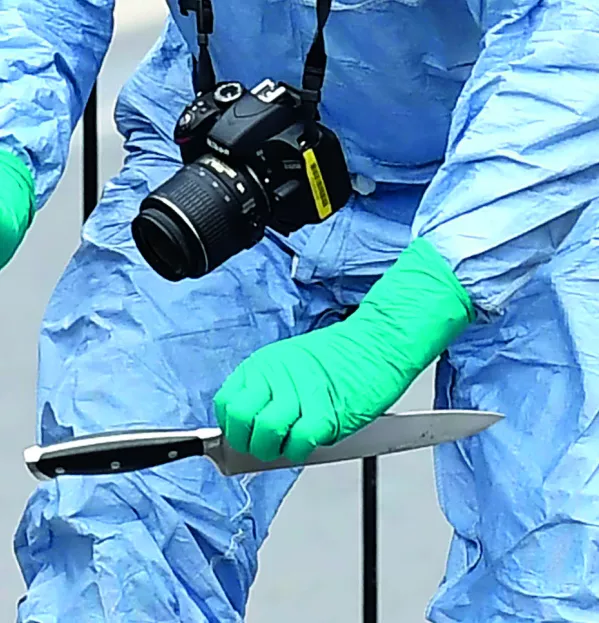Knife crime is a ‘national emergency’ - but how much can schools to do help?

It feels like a week doesn’t go by at the moment without hearing about another devastating case of a teenager dying because of knife crime. Indeed, new analysis of NHS figures shows that knife attacks on teenagers have risen by 93 per cent in five years.
And according to former Metropolitan Police commissioner Baron Hogan-Howe, school exclusions have helped to fuel the rise in violence and knife crime in the UK.
“We know that children who experience violence in the home, have only a single parent and are excluded from school have a very high risk of becoming involved in crime,” he said, writing in The Sunday Times.
“There are serious concerns that educational performance indicators cause some schools to exclude those whose behaviour is poor and contributing disproportionately to the school’s assessment. The pupil referral units are having a limited impact and may be deepening the crisis.”
He added that it was crucial to “have a hard look at education and find out what is going on with exclusion”.
A local authority in London is planning to do just that. Camden Council has announced that it will study the links between knife crime and school exclusions as part of a wider study of why pupils are removed from schools. This follows the annual report on the borough’s schools to its Children, Schools and Families Scrutiny Committee last month.
The West Midlands police and crime commissioner David Jamieson has also pointed towards exclusions as being a factor in “a serious outbreak of violence” in his region. He spoke after three teenagers were stabbed to death in Birmingham within two weeks, and said: “Many of the children who are getting involved in these crimes have been excluded from their school.
“This is a national emergency, and we must do something about that exclusion of children because those children are on almost an immediate path into crime and into violence.”
But for primary teacher Kate Townshend, linking knife crime to exclusions falls firmly into the category of teacher blaming. The above narrative is not only reductive and insulting to teachers but parts of it are also palpably inaccurate, she says.
“If only us pesky teachers would try a little harder for our pupils, rather than foisting off the tricky ones to specialist units, many of society’s most complex problems would clearly be solved in one fell swoop,” she writes on the Tes website.
“Exclusion doesn’t just happen because a tired teacher reaches the final straw with a troubled student one trying Friday afternoon,” she adds. “In fact, most of the teachers I know are their own harshest critics when it comes to challenging children - no teacher wants to feel they’ve ‘failed’ one of their students. No school does either.”
Townshend says there is little evidence that being excluded causes a pupil to be involved in crime. Indeed, their being excluded raises a red flag, alerting everyone to the fact that the young person in question is vulnerable, and needs - and deserves - help. A holistic approach would prove a more effective remedy than using education as a scapegoat, she insists.
It’s also important to remember that a teacher has to consider the wellbeing of all their students. And sometimes, Townshend says, living by the maxim that “every child matters” means accepting that we can’t always cater for all of them in the same mainstream classroom. The alternative would be allowing a small number of pupils to disrupt the education, and even the safety, of the majority.
What it ultimately comes down to, Townshend says, is accepting that everybody needs to tackle the underlying factors of knife crime more successfully, not just schools. Until that happens, she adds, we have to accept that exclusions are an essential part of the mix.
You need a Tes subscription to read this article
Subscribe now to read this article and get other subscriber-only content:
- Unlimited access to all Tes magazine content
- Exclusive subscriber-only stories
- Award-winning email newsletters
Already a subscriber? Log in
You need a subscription to read this article
Subscribe now to read this article and get other subscriber-only content, including:
- Unlimited access to all Tes magazine content
- Exclusive subscriber-only stories
- Award-winning email newsletters